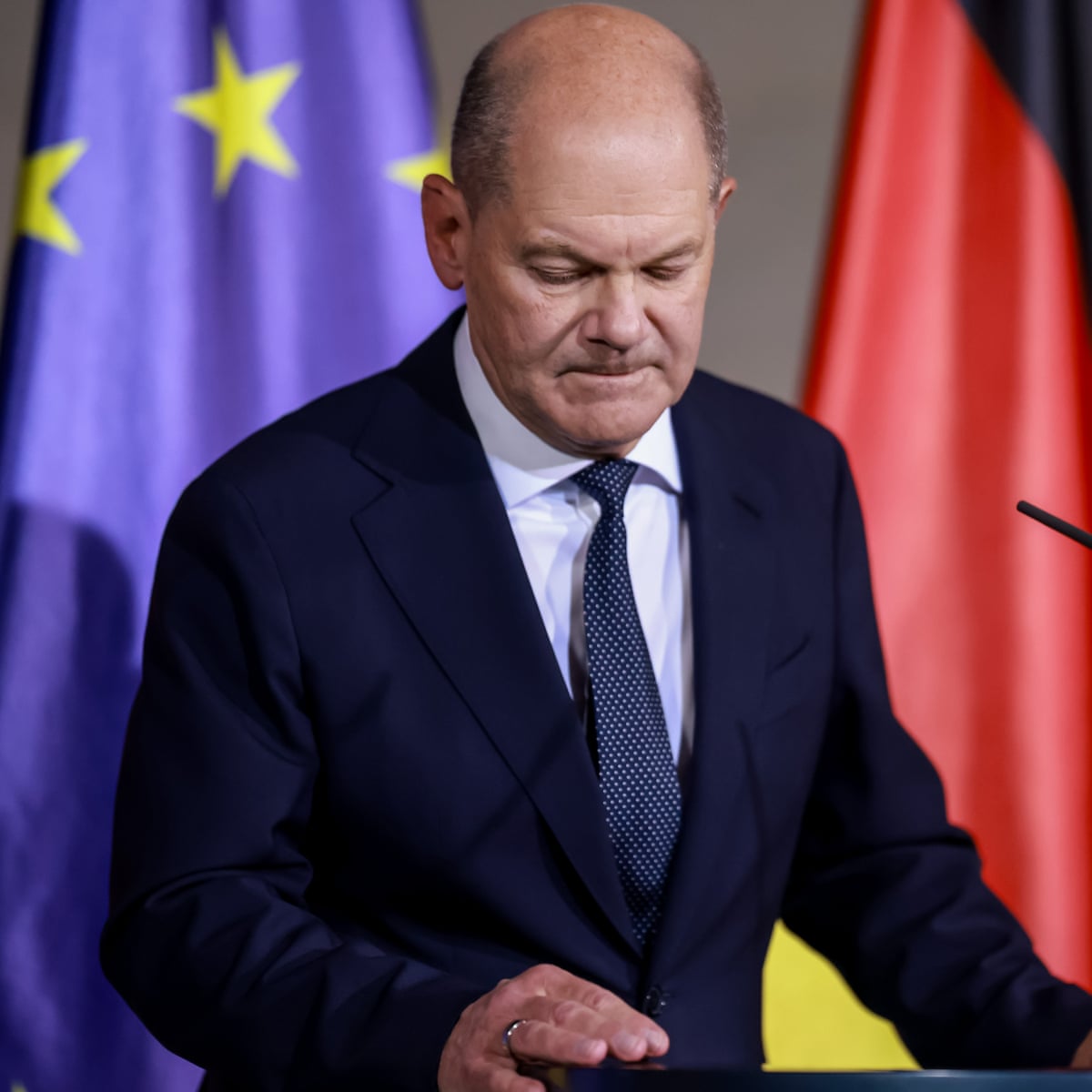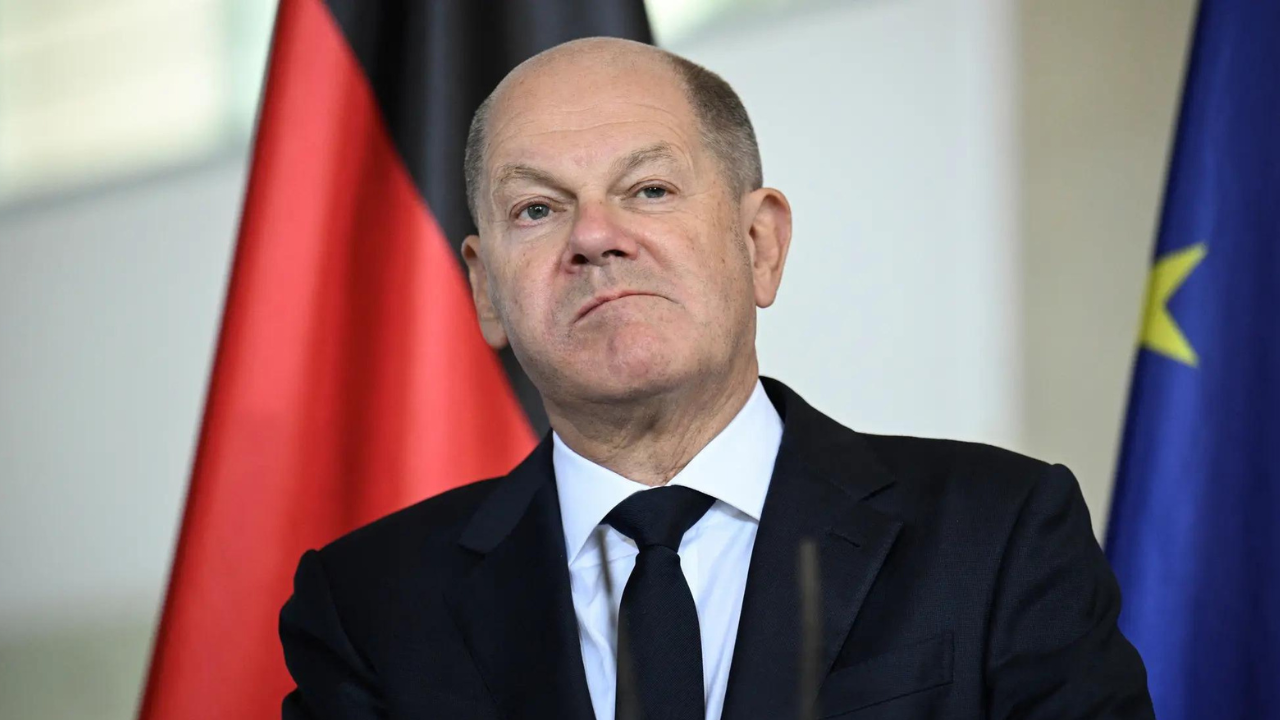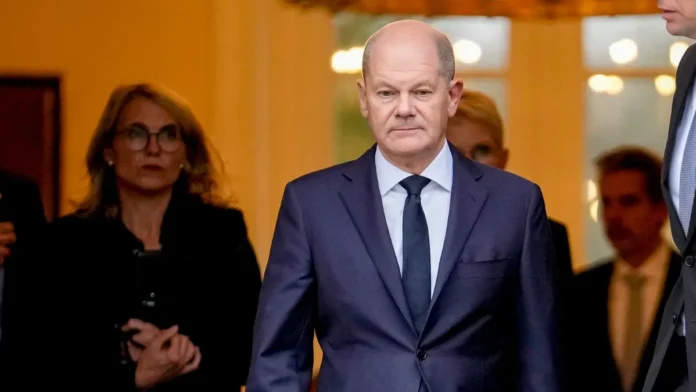In a dramatic turn of events, the political landscape in Germany has been rocked by the collapse of Chancellor Olaf Scholz’s coalition government. Following months of internal conflicts within the ruling coalition, the opposition has called for an immediate trust vote, rejecting Scholz’s offer to delay the vote until next year. The breakdown of the coalition has put Germany on the edge of a political crisis, with serious implications for the nation’s governance and stability.
The tensions within Scholz’s three-way coalition — comprising the Social Democratic Party (SPD), the Greens, and the Free Democratic Party (FDP) — reached a boiling point when Chancellor Scholz dismissed Finance Minister Christian Lindner on Wednesday. The move, intended to quell infighting, only escalated the situation, leading to the official breakup of the coalition. In a swift response to Lindner’s departure, Scholz appointed Jörg Kukies, a former economic advisor, as the new finance minister in an attempt to restore stability. However, the opposition was quick to capitalize on the fractured state of the government, demanding an immediate trust vote to assess Scholz’s authority to continue leading the country.

The Collapse of Scholz’s Coalition: A Timeline of Tensions
The roots of the coalition’s collapse trace back to ideological differences and policy disagreements among the three parties, particularly between the SPD and the FDP. Disputes over fiscal policies, climate change strategies, and social reforms have plagued the coalition since its formation. The Greens, committed to their environmental agenda, often found themselves at odds with the FDP, which advocates for more conservative economic measures. Scholz’s SPD, caught in the middle, struggled to balance these competing priorities, leading to a gridlock on key issues.
Tensions mounted over recent months as each faction attempted to push its agenda, only to face opposition from its coalition partners. This ongoing tug-of-war not only delayed crucial policy decisions but also eroded the trust between party leaders. The final straw came when Chancellor Scholz, in a controversial move, fired Christian Lindner, the leader of the FDP and a vocal critic of Scholz’s fiscal policies. The dismissal was intended as a corrective measure but instead signaled the end of the coalition.
Opposition’s Call for Immediate Action
The collapse of the government has opened the door for Germany’s opposition parties to challenge Scholz’s leadership. Opposition leaders argue that the internal instability within the coalition has jeopardized the country’s governance and compromised public confidence in the administration. By calling for an immediate trust vote, the opposition aims to force Scholz to demonstrate that he still commands the majority support needed to lead the country.
An immediate trust vote could spell further trouble for Scholz. With his coalition in disarray and support dwindling, he faces an uphill battle to rally enough backing to retain his position. The opposition, sensing an opportunity to capitalize on the government’s turmoil, has expressed a strong willingness to proceed with the trust vote at the earliest possible date.

The Appointment of Jörg Kukies: A Move to Stabilize or a Stopgap Solution?
In a bid to reassert control and signal continuity in leadership, Scholz appointed Jörg Kukies as the new finance minister. Kukies, a former economic advisor with a reputation for pragmatism, brings substantial experience to the role. However, his appointment is seen by many as a temporary solution rather than a definitive step towards restoring unity in the government. While Kukies is respected for his economic expertise, it remains to be seen whether he can navigate the fractured political landscape left in the wake of Lindner’s dismissal.
For Scholz, the choice of Kukies represents a calculated effort to regain control over the finance ministry, a critical pillar of the government. However, with the opposition intensifying its demands for a trust vote, the chancellor’s ability to consolidate his authority remains uncertain.
Potential Implications for German Politics and Governance
The collapse of Scholz’s coalition government has sent ripples across Germany’s political sphere, raising concerns about the nation’s political and economic stability. Germany, as Europe’s largest economy, plays a crucial role in the European Union and the global economy. The political crisis has cast doubt on Germany’s ability to fulfill its commitments on both domestic and international fronts.
The breakdown of the coalition could lead to a prolonged period of political uncertainty, with potential effects on Germany’s economy, climate policies, and social reforms. The infighting within the coalition has already stalled several key legislative initiatives, and the lack of a cohesive government could delay these measures even further. On the international stage, Germany’s instability may weaken its influence in EU affairs, particularly as the bloc faces its own challenges, including economic pressures and climate commitments.

Public and Political Reactions
The German public, observing the escalating tensions, has expressed mixed reactions to the political upheaval. While some citizens support the opposition’s call for a trust vote as a means to hold the government accountable, others view the ongoing power struggle as a distraction from Germany’s pressing issues. Political analysts have also voiced concerns about the implications of the government collapse, warning that the instability could erode public trust in the country’s democratic institutions.
Within Germany’s political establishment, responses have varied. Members of the SPD have rallied around Scholz, urging for unity and stability. However, figures within the Greens and FDP have adopted a more cautious stance, emphasizing the need for accountability and transparency in government operations. As Germany grapples with the fallout from the coalition’s collapse, calls for political reform and a reassessment of coalition dynamics are growing.
What’s Next for Olaf Scholz?
As the pressure mounts on Scholz, the immediate future of his leadership hangs in the balance. The chancellor’s capacity to weather the storm will depend on his ability to secure enough support for a potential trust vote and to address the criticisms leveled by both opposition leaders and former coalition partners. If Scholz manages to survive the trust vote, he will need to undertake substantial efforts to rebuild confidence within the government and the public.
For now, Scholz faces a critical test of his leadership and crisis management skills. The demand for a trust vote signifies a pivotal moment in German politics, with the potential to reshape the country’s political landscape. Whether Scholz can navigate this turbulent period and restore stability remains to be seen, but the next few weeks will undoubtedly be decisive in determining the course of Germany’s governance.

